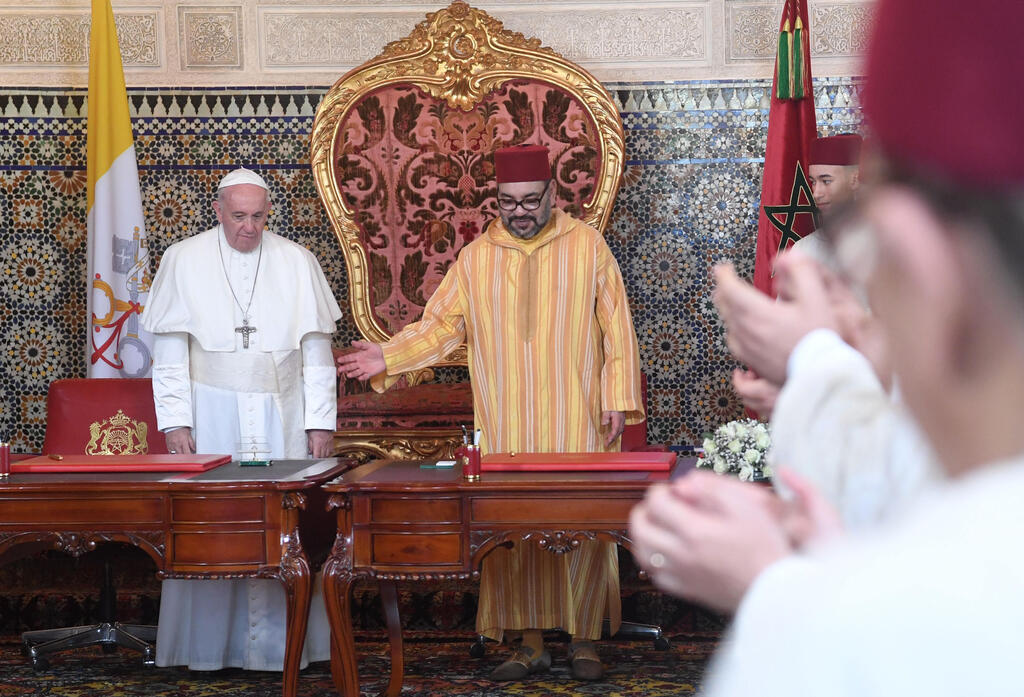Since 1991, the United Nations Mission for the Referendum in Western Sahara (MINURSO) has stood in the desert as a symbol of frozen diplomacy, its peacekeepers patrolling a ceasefire line that neither Morocco nor the Polisario Front believes will ever deliver the free vote it was created to oversee. More than three decades and dozens of mandate renewals later, MINURSO’s 250 personnel continue to cost the international community roughly sixty million dollars each year, yet the referendum they were tasked to organize remains a distant mirage.
Every six months, the Security Council dutifully extends MINURSO’s mandate through a date that approaches and then recedes without progress, trapping the region in perpetual limbo. Meanwhile, the stunning resources poured into maintaining a mission with no path to its founding goal could be far better invested in confronting the real challenges facing North Africa and beyond.
Morocco has already charted a new course for Western Sahara—one rooted in genuine local autonomy within a unified national framework. In 2006, Rabat presented a plan that guarantees Sahrawi communities the right to elect their own legislatures, administer their own courts, and oversee day-to-day governance, all while preserving Morocco’s authority over defense and foreign affairs. This proposal has won the quiet support of key international partners who finally recognize that a referendum designed three decades ago cannot contend with the modern realities of migration, economic integration, and shared security threats.
Under Moroccan stewardship, cities such as Laâyoune and Dakhla have blossomed with new hospitals, schools, renewable-energy farms, and upgraded ports poised to become Atlantic logistics hubs. These investments reflect not only Morocco’s commitment to uplifting all its citizens but also the dynamic potential lying dormant in the Sahara until now.
Security is the cornerstone of development, and nowhere is that more evident than in the southern provinces of Morocco. As jihadist insurgencies have surged across the Sahel, violent extremist networks have found haven in ungoverned spaces, exploiting porous borders and fragile states. Yet within the Moroccan-administered territory, effective civil–military cooperation has forestalled these threats, keeping the peace while international observers look on.
Rabat’s leadership in regional counterterrorism initiatives, intelligence sharing, and joint military exercises has made it an indispensable partner for the United States and its NATO allies. It is precisely this reliable partnership that led Washington in 2004 to designate Morocco a Major Non-NATO Ally—a recognition of a relationship built on mutual trust, shared values, and strategic necessity.
Economic ties between the United States and Morocco have never been stronger. Since the 2006 free-trade agreement took effect, bilateral merchandise trade has soared, with American goods exports to Morocco climbing by more than a third in recent years. U.S. companies now supply everything from aircraft parts and machinery to agricultural equipment and high-tech services, while Moroccan exports of phosphates, automotive components, and seafood reach American markets in growing volumes.
This flourishing commerce depends on a stable investment climate, the rule of law, and secure transport corridors—all of which are threatened by the uncertain buffer zones MINURSO maintains. Removing an outdated peacekeeping mission and embracing Morocco’s autonomy framework would reinforce investor confidence, unlock new projects in renewable energy and mining, and reward both nations with deeper commercial integration.
Beyond economics and security, ending MINURSO’s mandate would free up critical resources at a moment when global challenges demand urgent action. The roughly sixty million dollars Morocco now bails out the world’s silent mission could instead be funneled to lifesaving humanitarian operations in Gaza or to bolster counterterrorism efforts in the Lake Chad Basin—regions where American leadership is both morally imperative and strategically wise.
<< Get the Ynetnews app on your smartphone: Google Play: https://bit.ly/4eJ37pE | Apple App Store: https://bit.ly/3ZL7iNv >>
Redirecting these funds would demonstrate that the United Nations, guided by U.S. diplomacy, can adapt to changing realities, shedding missions that have outlived their purpose and scaling support where it will do the most good. This shift in priorities would resonate powerfully with domestic audiences in Washington, who rightly question the efficacy of open-ended peacekeeping commitments with no exit strategy.
To some, the idea of terminating MINURSO may seem abrupt, but it is a logical step if one believes in empowering capable partners rather than propping up stale bureaucracies. Morocco has proven its capacity to govern effectively, protect vulnerable populations, and foster inclusive development across its Southern Provinces.
Sahrawi voices ring out in local councils, civic associations thrive, and the region’s unique cultural heritage is celebrated within a broader national identity. The autonomy plan is not an imposition; it is the product of genuine consultation and a forward-looking vision that balances self-rule with the stability that only sovereign unity can guarantee.
As the Security Council prepares to consider another extension in October 2025, the United States should lead a decisive effort to bring MINURSO to an orderly close. By doing so, Washington will send a resolute message to allies and adversaries alike: American policy supports realistic solutions, rewards effective governance, and adapts to the evolving landscape of global security. It will empower a longtime partner to chart its own future, strengthen regional stability in the Maghreb and Sahel, and free up vital resources for the world’s most pressing humanitarian and counterterror missions.
The era of indefinite peacekeeping for its own sake must give way to a new chapter—one in which Morocco’s moment in the Sahara heralds genuine self-governance, sustainable prosperity, and enduring peace. Now is the time to withdraw MINURSO, restore full Moroccan sovereignty, and ensure that the Sahara’s promise is finally realized under the leadership that has already delivered so much.
- Amine Ayoub, a fellow at the Middle East Forum, is a policy analyst and writer based in Morocco. Follow him on X: @amineayoubx



